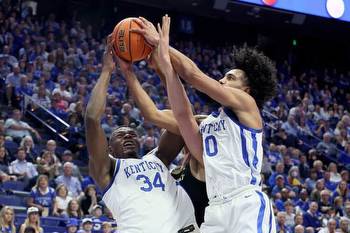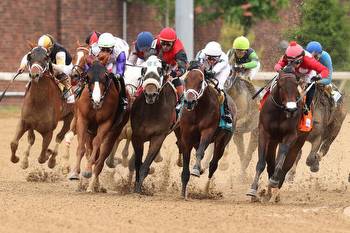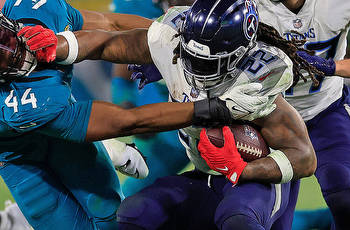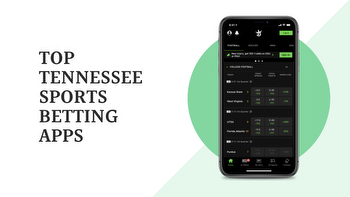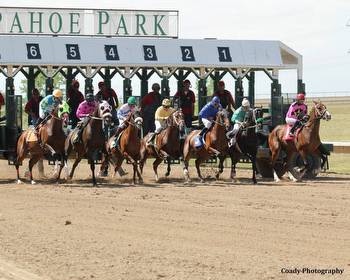Tennessee May Become First State to Tax Sports Betting Handle, Not Revenue

A bill is moving through the Tennessee legislature that would make Tennessee the first state to tax sports betting handle rather than gross gaming revenue.
When Tennesse legalized online sports betting in November 2020, there were two features that combined together to make Tennessee unique among all legal sports betting states:
- Tennessee has only mobile sports betting with no retail sportsbooks
- Tennessee requires its sportsbooks to hold 10% of their handle with that adjusted gross income taxed at 20%.
The 10% hold has proven controversial with sportsbook operators that claim the restrictions make it difficult for them to offer users competitive odds and enticements away from offshore, unlicensed books.
New legislation — bills HB1362 and SB475 — seeks to resolve the 10% hold issue by proposing yet another unusual and potentially controversial practice of taxing sports betting handle instead of adjusted gross income.
As of April 5, the bill was recommended for passage by the Finance, Ways, and Means Committee and referred to the Senate Calendar Committee.
Confused yet? Let’s break it all down.
Tennessee’s Current Sports Betting Tax Structure
As of 2020, when Tennessee legalized sports betting, the law requires licensed TN sportsbooks to maintain a 10% hold. The state taxes TN sports betting revenue at a 20% rate. By requiring a 10% hold, regulators ensure they are getting more in tax revenue.
Tennessee’s Sports Wagering Advisory Council (SWAC) took over state sports betting regulation from the Tenessee Education Lottery (TEL) in January 2022. At that time, it realized the tax data from the TEL and from sportsbook operators didn’t match up. Since then, the SWAC has been working to clean up the sports betting tax mess.
What is a Hold, and Why is a 10% Minimum Hold Bad for Sportsbooks?
A “hold” simply means the amount that sportsbooks keep of their total handle and don’t pay out to bettors.
Often, major sportsbooks operate with a much lower hold percentage in order to attract new users and get a larger share of the sports betting market. The average hold percentage in Las Vegas is 5%, while in many states, it’s around 5-7%. Sometimes hold is negative, especially around major events like the Super Bowl if the state’s team is playing.
By offering more competitive odds and promos for new users, sportsbooks often pay out more than 90% of the handle. They argue this benefits consumers and keeps legal sportsbooks competitive.
So why would Tennessee lawmakers want to discourage a lower hold percentage? According to the regulating body, the 10% hold contributes to higher state tax revenue. It also theoretically protects the state sports betting market from large sportsbooks operating at a loss in order to create a monopoly.
So far, in Tennessee, sportsbooks have not maintained the 10% hold. The SWAC gives operators two options if they aren’t in compliance:
- Pay a $25,000 fine and get a noncompliance mark on their record, which all states can see and which could affect future licensing.
- Make a “true-up” payment to fill the gap between the 10% hold and what the sportsbook actually held.
Since documenting these rules, though, Tennessee has yet to see those payments come to fruition.
What’s in the New Tennessee Gaming Bills About Taxing Sports Betting Handle?
The new bill currently in the State Senate (SB0475) proposes taxing TN sportsbooks 1.84% on their total handle rather than their revenue. With an amendment, the bill currently calls for a 2% tax on the handle instead of a 20% tax on revenue.
Sports betting handle is the total amount wagered on sportsbooks before payouts for winnings or betting promos. It’s a much larger number than the adjusted gross revenue, which is why the tax percentage is so much lower. No other state taxes sports betting based on handle.
The bills are so far proceeding through the Tennessee legislature without much resistance. On April 5, the Finance, Ways and Means Committee voted unanimously to recommend SB0475 for passage and sent it to the Senate Calendar Committee.
How Would Tax Revenue Be Affected?
The numbers bear out that the minimum hold does lead to the highest tax payout. However, because it’s so controversial, and sportsbook operators have failed to consistently achieve the 10% hold, the tax revenue based on the handle may be seen as a sufficient compromise on both sides.
Here’s an example of the total tax amounts based on each of these three options, based on sports betting taxes paid from November 2020 to February 2023:
- Taxes based on a 10% hold and 20% tax rate equal $152.6 million.
- Taxes based on a 20% tax rate when operators missed the 10% benchmark equal $126.4 million.
- Taxes based on a 1.84% handle tax equal $141.2 million.
The highest tax revenue comes through taxing revenue at 20% with a 10% hold. But, since operators aren’t achieving this, taxing on the handle at 1.84% or even 2% (as the amendments require) is the second best option in terms of tax revenue.
We’re keeping an eye on how this bill moves through the Tennessee legislature and will keep you updated.
Article contributed by Hannah Vanbiber.

















